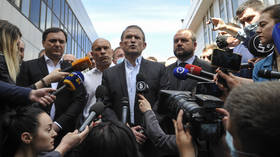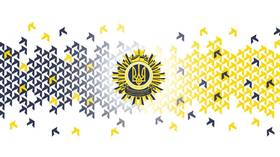Ukraine’s top opposition party banned

Ukraine’s Opposition Platform – For Life (OPPL) party was officially banned by a Ukrainian court on Monday. The Ministry of Justice announced on Facebook that all of its assets, property, and funds are to be transferred to the state.
The ruling to ban the party was carried out by the Eighth Administrative Court of Appeals in the western city of Lviv, following a request from the Ministry of Justice. The OPPL had all of its operations suspended by the authorities in Kiev in March after the launch of Moscow’s military operation, and the party and its leaders were accused of having ties to Russia and being “anti-Ukrainian.”
In its Facebook post, the ministry noted that Ukrainian courts have so far banned 11 so-called “pro-Russian” parties suspected of acting to “undermine the sovereignty” of the country.
Before its operations were suspended, the OPPL was Ukraine’s largest opposition group and second-largest party in the country. In 2019, it won 13% of the vote in a parliamentary election, and in 2021, polls showed that it surpassed President Volodymyr Zelensky’s ‘Servant of the People’ as the most popular party.
Since 2018, it was led by Viktor Medvedchuk, a businessman who called for better relations with Russia and saw Kiev’s western turn as detrimental to national interests. In May 2021, Medvedchuk was placed under house arrest after being accused of treason amid Zelensky’s crackdown on dissent.
Medvedchuk had repeatedly denied accusations against him as “politically motivated,” and insisted he was never “pro-Russian,” but merely wanted what was best for the Ukrainian people.
On April 12, the OPPL leader was captured by the Ukrainian Security Service (SBU) as he allegedly tried to flee the country. The arrest was made public after Zelensky published a photo of the man in handcuffs. The politician has since been held in custody by the SBU at an unknown location.
Medvedchuk’s wife, Oksana Marchenko, has been pleading with world leaders to organize her husband’s release or exchange and has accused the SBU of beating and torturing him.
Last week, Ukrainian courts banned two more political movements – the Left Opposition and the Party of Shariy – both of which were previously featured on the list of 11 political factions suspended by Ukraine’s Security Council.
On May 14, President Zelensky signed into law a bill that simplifies the process of banning political parties deemed to be ‘anti-Ukrainian’. Under the law, any party that opposes or challenges the official position of the government, especially when it comes to the ongoing conflict with Moscow, can have its operations banned and assets seized by a court ruling that cannot be appealed.
The bill outlaws denial of the ‘aggression against Ukraine’, or referring to the conflict as ‘internal’ or a ‘civil war’. It also prohibits positive statements regarding the ‘aggressors’, and makes it illegal to refer to the forces of the Donetsk and Lugansk republics as ‘insurgents’, insisting that they should be called ‘terrorists’.
Russia attacked the neighboring state in late February, following Ukraine’s failure to implement the terms of the Minsk agreements, first signed in 2014, and Moscow’s eventual recognition of the Donbass republics of Donetsk and Lugansk. The German- and French-brokered protocols were designed to give the breakaway regions special status within the Ukrainian state.
The Kremlin has since demanded that Ukraine officially declare itself a neutral country that will never join the US-led NATO military bloc. Kiev insists the Russian offensive was completely unprovoked and has denied claims it was planning to retake the two republics by force.













